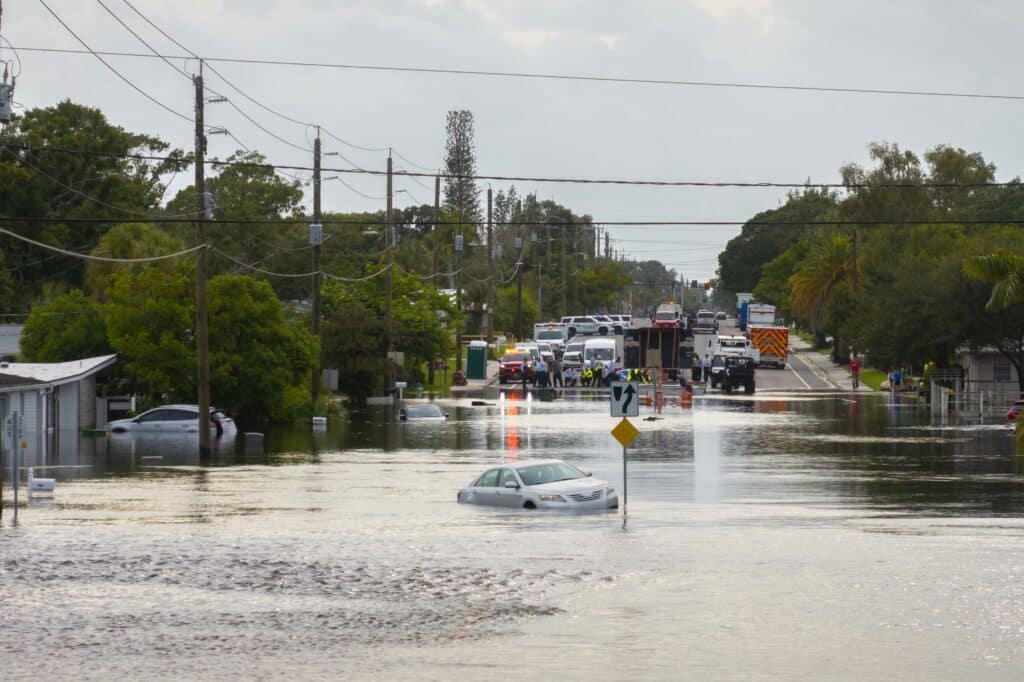
In the aftermath of recent hurricanes in the U.S., public health officials are warning about an increased risk of leptospirosis outbreaks. This bacterial infection, often associated with waterborne transmission, becomes a serious concern in areas affected by heavy rainfall and flooding.
What Is Leptospirosis?
Leptospirosis is a bacterial disease caused by Leptospira bacteria, which can be found in the urine of infected animals, particularly rodents, dogs, and livestock. The bacteria can survive in moist soil and water for weeks to months. Humans contract leptospirosis through direct or indirect contact with contaminated water or soil, often when floodwaters are involved.
Flooding creates an ideal environment for the spread of leptospirosis. People may inadvertently come into contact with contaminated water while wading through floods, cleaning up debris, or drinking from untreated water sources. Additionally, poor sanitation conditions in the wake of hurricanes allow the bacteria to spread more easily.
Why Hurricanes Increase the Risk
Hurricanes and subsequent flooding often overwhelm infrastructure, displacing animals and causing water contamination. Hurricanes Milton and Helene led to significant flooding in several regions, creating the perfect breeding ground for leptospirosis. People cleaning up flooded homes, handling debris, or simply walking through contaminated waters are at a higher risk of infection. As the floodwaters mix with animal urine, particularly from rats, the chances of contracting leptospirosis increase.
According to the CDC, leptospirosis outbreaks are not uncommon after hurricanes or flooding events. This is due to the high likelihood of people coming into contact with contaminated water, as well as the disruption of clean water and sanitation systems.
Symptoms of Leptospirosis
Leptospirosis can cause a wide range of symptoms, from mild to severe. Early symptoms are often mistaken for flu and may include:
Fever
Chills
Headaches
Muscle pain
Vomiting
Diarrhea
Red eyes
In more severe cases, the infection can cause liver damage, kidney failure, or respiratory problems. If untreated, leptospirosis can lead to life-threatening conditions, such as meningitis or Weil’s disease (a severe form of the infection with liver or kidney failure).
How to Prevent Leptospirosis After a Hurricane
There are several precautions that can help reduce the risk of leptospirosis in areas affected by hurricanes:
Avoid Contact with Floodwaters: Whenever possible, avoid wading through or coming into contact with floodwaters. If you must enter water, wear protective clothing, such as waterproof boots and gloves.
Proper Wound Care: Keep any open cuts or wounds covered with waterproof bandages to prevent the bacteria from entering your body.
Sanitation: Clean and disinfect any objects or surfaces that have come into contact with floodwaters. If you’re involved in cleanup, use gloves and thoroughly wash your hands after handling any materials.
Boil Drinking Water: Only consume water from safe, treated sources. If clean water is not available, boil or disinfect water before using it for drinking, cooking, or washing food.
Treatment and Prognosis
Leptospirosis is treatable with antibiotics, especially when diagnosed early. Individuals showing symptoms after potential exposure should seek medical attention immediately. Most mild cases can be successfully treated, but severe cases may require hospitalization.
Conclusion
As the U.S. continues to recover from Hurricanes Milton and Helene, it is important to stay vigilant against health risks like leptospirosis. By understanding how the disease spreads and taking preventive measures, communities can protect themselves from potential outbreaks. Whether it’s avoiding contact with floodwaters or ensuring proper sanitation, small actions can make a big difference in stopping the spread of this bacterial infection.
References:
Kurtz, D. (2024, October 10). The long, brutal public health cost of hurricanes. TPM – Talking Points Memo. https://talkingpointsmemo.com/morning-memo/hurricane-milton-florida-helene-north-carolina-public-health.
Marinova-Petkova et al., n.d. (2019). First Reported Human Cases of Leptospirosis in the United States Virgin Islands in the Aftermath of Hurricanes Irma and Maria, September-November 2017. Open forum infectious diseases, 6(7), ofz261. https://doi.org/10.1093/ofid/ofz261.
Preventing Leptospirosis after Hurricanes or Flooding. (2024, April 25). Leptospirosis.

